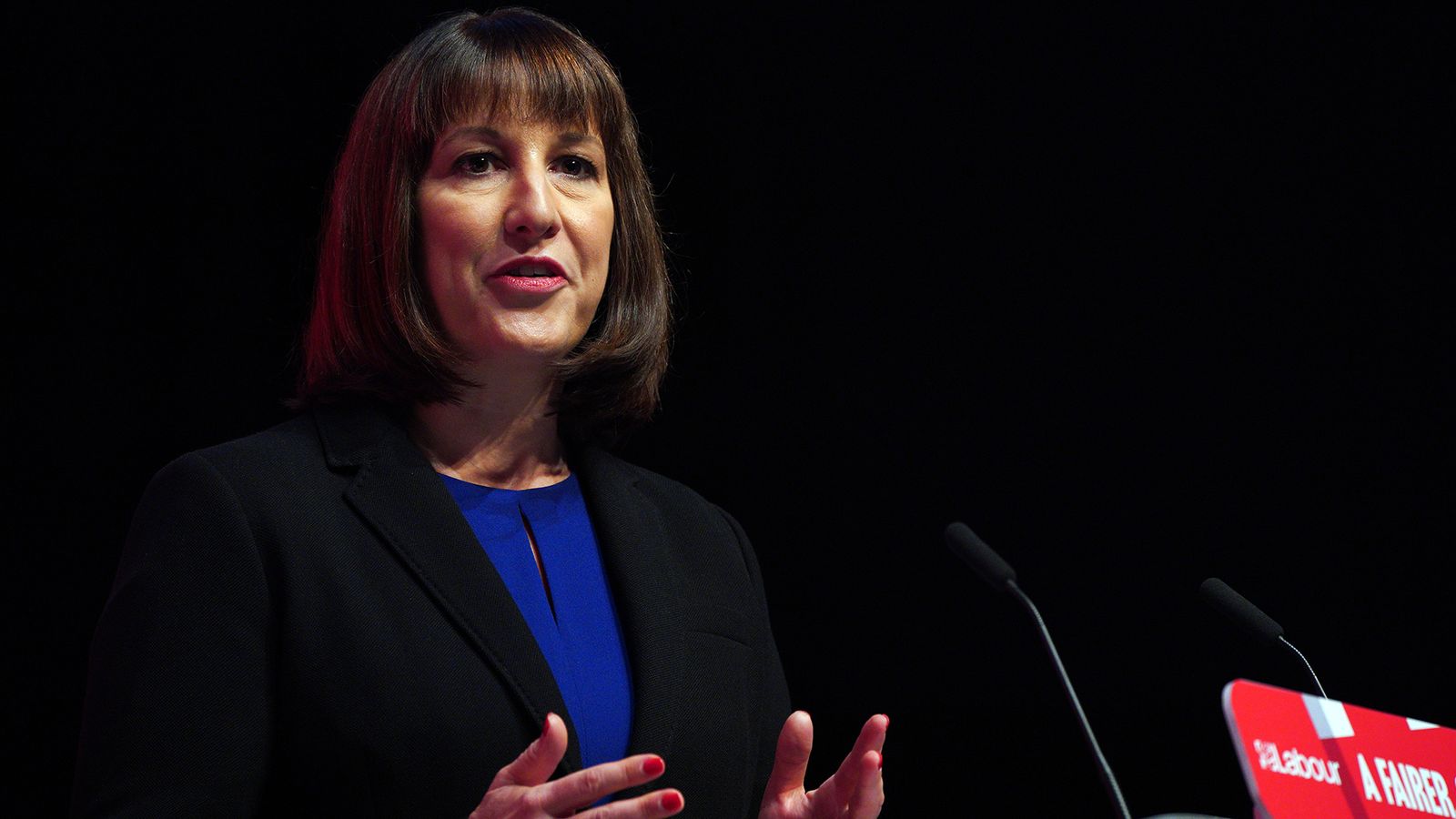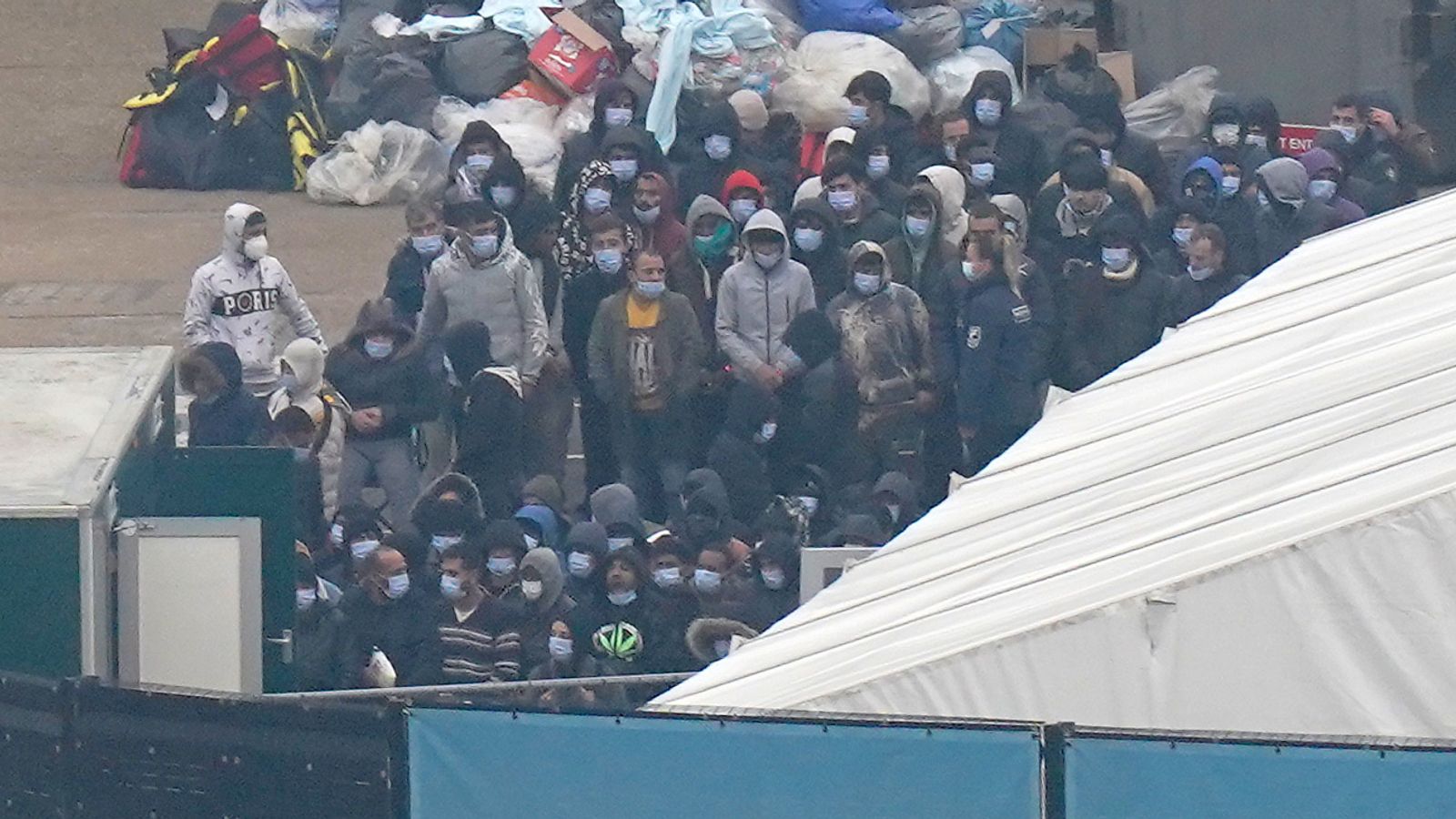Introducing laws to ban emergency service workers from going on strike would be “the wrong solution to a very serious problem”, says Labour’s Rachel Reeves.
Prime Minister Rishi Sunak has not ruled out bringing in the legislation, having warned he was working on “new tough laws” to tackle disruption amid a winter of industrial action.
But the shadow chancellor pointed to remarks by transport secretary Mark Harper that any law wouldn’t be in place in time to curb walkouts over the coming weeks, nor deal with “the underlying issues” for public sector staff.
Politics live: Ministers have ‘torpedoed’ strike talks
Ms Reeves told Sky News: “This is the wrong solution to a very serious problem.
“Instead of trying to stop industrial action through legislation, the government should be trying to resolve these issues that are causing key workers to take this action in the first place.”
Asked what Labour would do about the strike action that is dominating the days and weeks ahead, the shadow chancellor insisted her party would have “a different approach”.
But she pointed to the bigger picture of the economy, saying they would “invest in public services”.
Ms Reeves added: “We didn’t have this sort of industrial action under the last Labour government because the last Labour government treated key workers with the respect and the dignity that they deserved and got round the table and negotiated.
“That’s what we need to see from this government and the sooner that happens, the better for the people who work in those services, the people who rely on those services and, of course, the small businesses who rely on the trains to get them there.”
Read more:
Christmas travel hit by new strikes as Border Force set for airport walkouts
Rail strikes: Your refund rights explained
Strikes every day before Christmas – which sectors are affected and why
‘Looking for scapegoats’
Earlier, shadow health secretary Wes Streeting said he thought ministers had “deliberately spoilt for a fight” with health workers taking strike action, saying at an Institute for Public Policy Research event the government “don’t have a plan for the NHS this winter”.
He added: “I think they are looking for scapegoats, and I think they are choosing nurses and paramedics. I think it is dangerous, irresponsible and I think it will backfire on the government.”
Mr Streeting appeared to go further than his colleague when it came to what Labour would do to end the industrial action, hinting they would be willing to raise the pay offers on the table.
“We have got inflation running at record levels and there are cost of living pressures, particularly among lower paid staff,” he said, “and I think it is potentially self-defeating for ministers to rule out discussions and negotiations around certain issues before talks have even begun.
“I appreciate the pressure the public finances are under, I appreciate the government is now facing action on pretty much every front, but we have got to see, particularly, pay in the NHS and social care, as retention issues as much as anything else.
“And when we are losing staff not just from social care, but from the NHS to other employers because of pay, I think the government should be sensitive to that and be willing to talk.”
The shadow health secretary did say Labour wouldn’t be able to match what nurses were demanding on pay – inflation plus 5% – adding: “We are not making promises we can’t keep.
“But we would be willing to talk and negotiate and I think that’s the least the government should do.”









